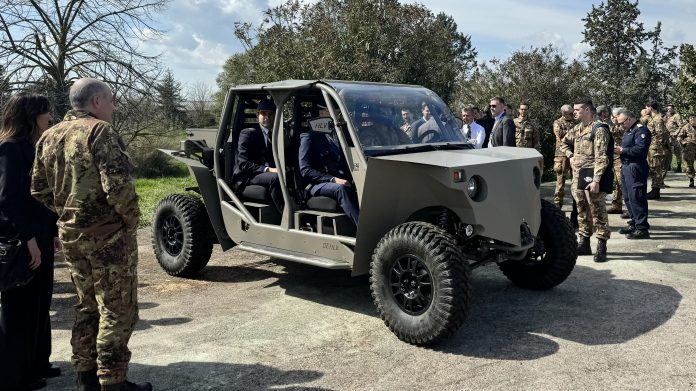EU defence ministers meeting in Brussels on Tuesday will add joint procurement to the tasks of the European Defence Agency (EDA), despite criticism and reluctance to use the body for this purpose, Euractiv reports.
The EDA originally appeared as a joint procurement agency that EU member states would use according to their defence equipment needs. European armies would also use the same equipment, making it easier to work together on the battlefield.
However, the body only started to fulfil this task two years ago, after the outbreak of the military conflict in Ukraine. Under the EU’s European Defence Industry Reinforcement through common Procurement Act (EDIRPA) fund, it was supposed to compile a list of equipment that EU countries could jointly procure to replenish their stocks transferred to Ukraine. This duty will now be emphasised in the updated EDA mandate.
According to an EU diplomat, two new main tasks will come up: “aggregating demand for joint procurement and representing defence ministries in the development of EU civilian policy” to reflect military needs. One EU official also said:
We have an expanded and reinforced mandate with a very strong focus on supporting our member states through all the steps of the development of military capabilities.
These two tasks will add to the three already underway: identifying the priorities and needs of countries’ armed forces, participating as project managers in research and development of products and technologies that need to become scalable, and harmonising requirements in capability development.
According to a senior EU official, the decision to focus on joint procurement follows the work that EDA has been doing to procure 155mm artillery and ammunition based on the EU’s ammunition procurement plan for Ukraine. This is a change in EU countries’ thinking and interest in the agency, given that it only took on the role a few months ago.
Criticism of decisions
The agency has also faced harsh criticism behind closed doors due to the fact that some countries – including Germany – decided to lead a group of states for joint procurement rather than rely on the EDA to award framework contracts for joint ammunition procurement. Nevertheless, several member states have taken advantage of these deals and the EDA.
However, officials and diplomats said that much of the framework contracts have yet to come to fruition, calling into question the purpose of supporting EDA in its quest to become a full-fledged joint procurement agency.
Under the second new task, the EDA is to act as a common voice representing the interests of the defence bubble in all policy processes that may affect industry or the armed forces. The same official explained:
Many EU policies may have an impact on defence, and EDA will be there as the voice of ministries of defence and represent defence interests when discussing those policies.
The EDA has recently been championing the defence industry and ministries, calling for more investment. In particular, they pushed for the European Investment Bank (EIB) to change its lending policy, which it did after months of debate. Another example is the European Single Sky (ESS), which will eventually affect the defence sector. The official added:
There was consensus to reinforce existing co-operation with NATO and develop the co-operation with Ukraine as soon as conditions allow it.
